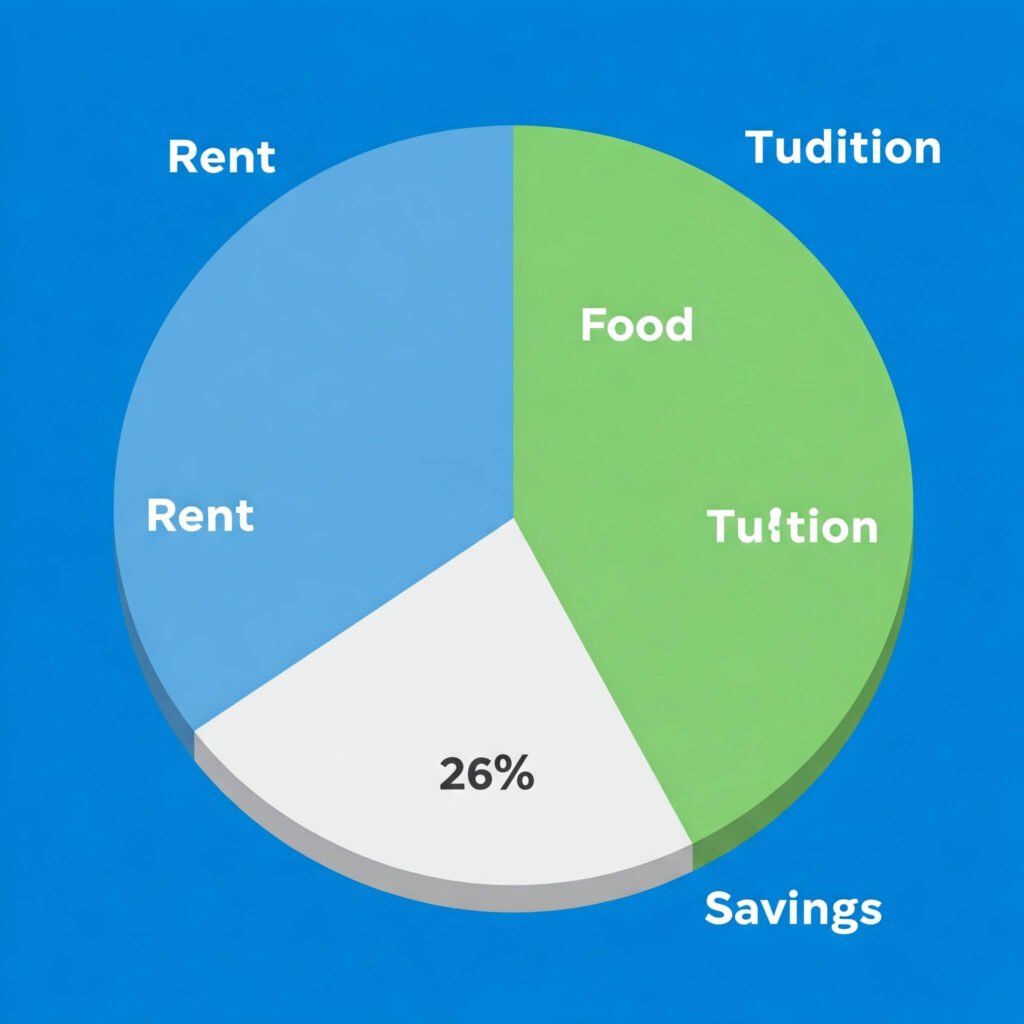Budgeting for students is about stretching every dollar when tuition’s eating half your soul—average student savings? Barely 3% of income, and I was negative. These tips? Born from my sweaty all-nighters, frantic app scrolls, and one mortifying moment when I tried to Venmo my rent and got declined—publicly, in a coffee shop line. Tip from my flops: track daily; I skipped a week and overspent $50 on wings. Contradiction: I preach frugality, yet I impulse-bought a band tee mid-budget—chaos vibes.
Mint: The Free App King for Budgeting for Students
Mint’s a lifesaver for budgeting for students—free, tracks spending, and yells when you’re blowing it. Downloaded it after a humiliating moment when my card got declined for a $5 latte—barista’s side-eye still haunts me. Linked my accounts, set a $100/month “fun” budget; it pinged me when I hit $90 at a food truck. Pros: free, sleek charts. Cons: ad overload; I ignored one and overspent. Surprising: auto-categorizes pizza as “dining regret.” Grab it at Mint—don’t skip setup like I did, distracted by a dorm party.ent budget helps you avoid debt, build savings, and develop lifelong financial habits.

Envelope System: Old-School Budgeting for Students That Works
The envelope system—cash in labeled envelopes—is clutch for budgeting for students. Tried it after blowing $80 on bar tabs, stuffing $50 for food, $20 for fun; fun envelope ran dry in a week, taught me limits. Pros: tangible, no overspending. Cons: carrying cash in Austin’s humid chaos? Sketchy, lost $5 once. Surprising: felt like a game. Check Dave Ramsey—saved my broke butt from more bar fails.
- My Rookie Tip for Budgeting for Students: Label a “surprise” envelope; saved me from a $30 textbook fee.
- Why It Fit My Mess: Forced my scatterbrain to prioritize.
YNAB: The Intense App
YNAB (You Need A Budget) is the tough-love coach among budgeting for students’ tools—$99/year but worth it. Started after a spring break disaster left me with $10; assigned every dollar to rent, food, savings. Pros: zero-based budgeting, community vibes. Cons: pricey for students; I winced at the cost. Surprising: gamified saving $200 in two months. Dive into YNAB—don’t sign up mid-all-nighter like me, math gets fuzzy.
Side Hustles: Cash Flow Hacks for Budgeting for Students
Side hustles are gold —more cash, less stress. Started driving for Uber Eats after a $200 tuition bill blindsided me; made $150/week, padded my savings. Pros: flexible, quick cash. Cons: gas costs; I underestimated once, ate into profits. Surprising: tips boosted my budget. Explore Indeed—don’t start during finals like me, nearly crashed.

Cut Subscriptions: Sneaky Savings for Budgeting for Students
Ditch unused subscriptions to nail budgeting for students. Used Rocket Money to spot a $10/month Spotify dupe—canceled it, saved $120/year. Pros: instant savings. Cons: confronting your sub list is humbling; I had three streaming duds. Surprising: apps negotiate bills too. Try Rocket Money—caught my dumb Netflix double-charge mid-taco run.

Wrapping My Rant : From Broke to Barely Surviving
Whew, spilling this while Austin’s neon taco signs buzz outside—feels like shaking off a bad midterm. These budgeting for students hacks didn’t erase my flops (that festival ticket binge? Still stings), but they stretched my $1,500/month gig into a $400 savings pot, and I’m not eating ramen daily anymore. Contradiction: I curse budget apps, yet I’m hyped for my tiny nest egg—peak college hustle, right? If you’re in the US student grind—tuition looming, tacos tempting—grab these budgeting for students tips, track like I forgot to, and dodge my dumb buys. Got a broke horror? Drop it below, let’s vent over virtual queso.
Outbound Link: The Ultimate Guide To Budgeting For Students: How And Why? | Amber:




